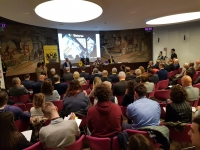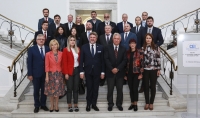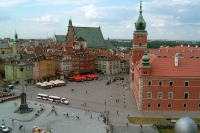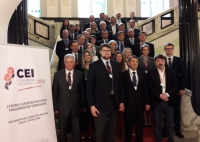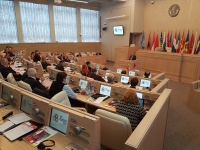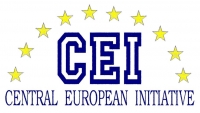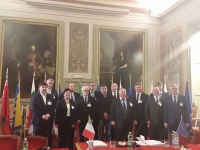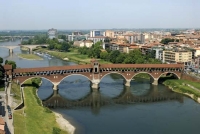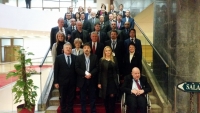MP Vuković takes part in the XIV International Forum in Udine
Meeting of the CEI-PD General Committee on Economic Affairs held
Mr Miodrag Vuković at the meeting of the CEI-PD General Committee on Economic Affairs
Meeting of the CEI - PD parliamentary committee held
U Minsku održano zasijedanje Parlamentarne skupštine Centralnoevropske inicijative – CEI-PD
Šef stalne delegacije Skupštine Crne Gore pri parlamentarnoj dimenziji Centralnoevropske inicijative prof. dr Miodrag Vuković, učestvovao na zasijedanju
Annual Meeting of the Parliamentary Assembly of the Central European Initiative CEI-PD
CEI-PD General Committee on Cultural Affairs holds a meeting
Topic – "Europe of Museums. Traditions, Cultural Backgrounds, Identities in the Common Path"
Head of the Permanent Delegation of the Parliament of Montenegro to the CEI-PD, Mr Miodrag Vuković, participated today in the Meeting of the General Committee on Cultural Affairs of the Parliamentary Dimension of the Central European Initiative, which was held in Pavia, Italy.
Presentations on the topic of "Europe of Museums. Traditions, Cultural Backgrounds, Identities in the Common Path” were given by Mr Giacomo Galazzo, representative of the Cabinet for Culture, Tourism and the Rule of Law of the City of Pavia, Mr Francesco Svelto, professor at the University of Pavia, Senator Luis Alberto Orellana, Chairperson of the CEI-PD General Committee on Cultural Affairs, Mr Erik Csernovitz, CEI Deputy Secretary General and Professor Michaela Magliacani, Director of the Museum of Electrotechnics.
In his address, Mr Miodrag Vuković, Head of the Montenegrin Delegation, pointed out that Montenegro has been recognised as a country where multiethnic and multicultural harmony has been nourished and where members of the three religions affirm coexistence and tolerance. Mr Vuković informed the participants of the meeting about rich cultural heritage and history of Montenegro, emphasising the importance of preserving traditional values. He also referred to the museum activity in our country, stating that the year of 1838 was considered as the year that the state museum was established in Montenegro. He concluded that Montenegrin society was proud of its cultural heritage and recognises the importance of its preservation.
During the discussion, which was also attended by members of the parliaments of Austria, Moldova, Slovenia, Poland, Ukraine and Serbia, it was estimated that museums, as a meeting point of different identities, played a particularly important role in the times of migration crises and could contribute to the faster integration of migrants into society. The importance of nurturing cultural heritage, through sustainable development strategies and the use of new tenologies, that contributed to the greater valorisation of cultural resources, was emphasised.
The participants agreed that in the time when Europe faced numerous political and economic challenges, culture should be the basis for strengthening the cooperation of the member states of the Central European Initiative.



